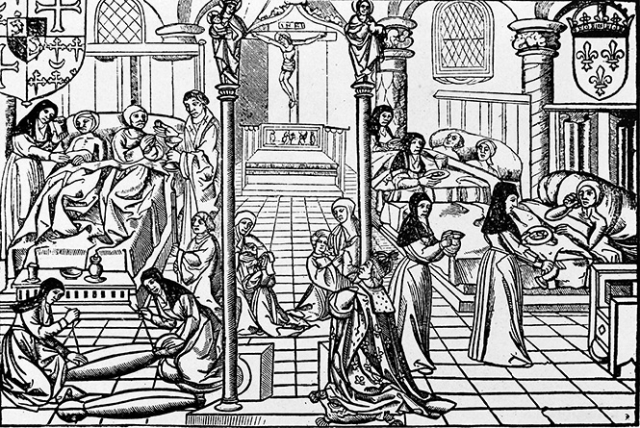Old age care in the time of crisis: London in the sixteenth century
Historian article

Old age care in the time of crisis
In her lecture to the General Strand of the HA Conference, Christine Fox describes the successes and failures of London institutions in dealing with the sixteenth-century crisis of poverty and elderly care.
In late medieval and early modern thinking, human life was divided into three stages; youth, maturity, and old age. The latter was seen by contemporaries such as Chaucer, Langland and Shakespeare as a period lacking colour and excitement. Some contemporary authors such as Antonio de Guevara (1481-1545), a Spanish chronicler and moralist, went even further. In his work The Diall of Princes, he advocated forced suicide at the age of 50, suggesting that the elderly throw themselves into a fire to release the family and community from the burden of their care. Thomas Middleton (c.1580–1627) in his play The Old Law (1618–19) suggested the execution of the elderly (men at the age of 80 and women 60) by throwing them off a cliff into the sea to ensure a greater inheritance for the surviving relatives and reduce strain on their communities. While both works were written satirically, they do suggest that people and society struggled with their responsibilities to the elderly. The elderly were marginalised members of society and (along with the sick, mentally and physically disabled, and the poor) were often referred to as the ‘impotent poor’. The care of marginalised people was predominantly overseen by a handful of religious institutions such as hospitals, monasteries, parish churches, and almshouses...
This resource is FREE for Student HA Members.
Non HA Members can get instant access for £2.49

